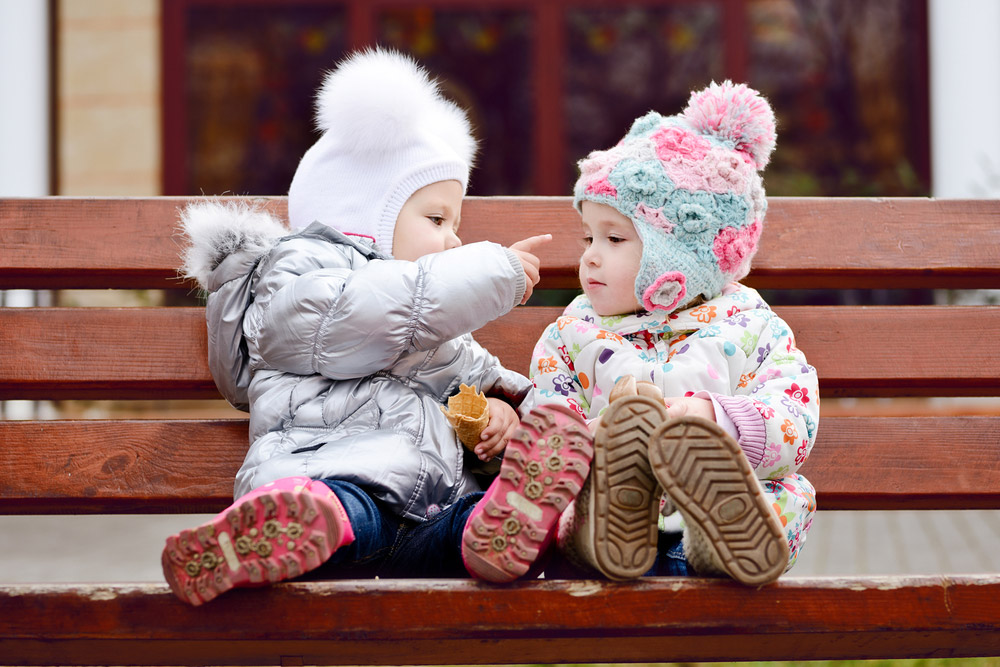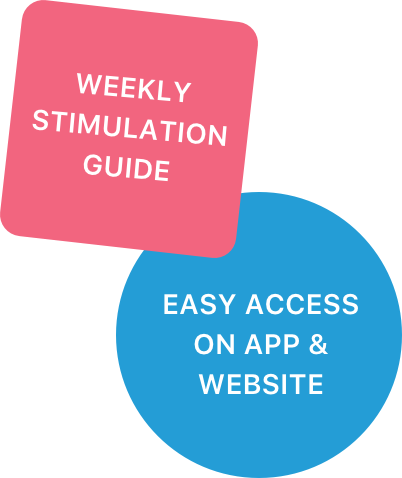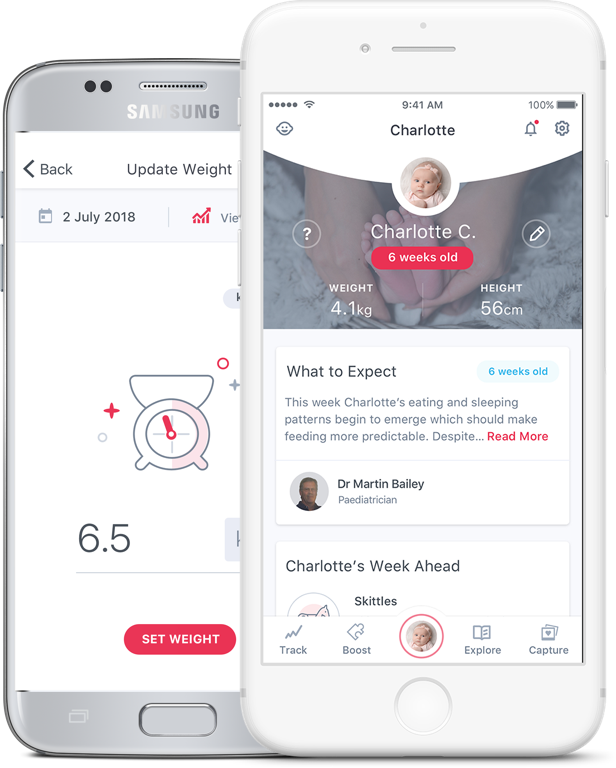Social and emotional development – the first 1000 days
Written by Joanne Lillie | Journalist
Tags: Social & EmotionalStimulationGrowth and DevelopmentPlay
Social development entails learning how to interact with other people and what kind of behaviour is appropriate in different contexts. Emotional development focuses on learning how to identify and label different emotions in oneself and in others, as well as how to regulate these emotions.
Humans are social in nature and the ability to navigate interpersonal relationships constructively may lead to success in relationships and one’s career; better mental health and a sense of personal fulfilment.
The first three years of a child’s life are filled to the brim with social and emotional developmental changes. Parents will notice their babies becoming more interactive as they develop as well as the nature of their interactions becoming more complex.
Claire Toi, Clinical Psychologist for Nubabi shares some important milestones you should notice in your little one in the first three years:
- Initially, young infants will start to focus on faces - the distance between a baby and caregiver’s faces when nursing or bottle feeding is optimal.
- They will show interest in voices by listening; respond positively to touch and appear to enjoy social interaction.
- This evolves into smiling and laughing; recognising faces and familiar voices; smiling at their reflection; crying when upset and seeking comfort; and responding to their own name.
- Infants will show excitement by kicking their legs and waving their arms and will enjoy playing games like peekaboo.
- They will gradually start to display a number of emotions and will also begin to understand others’ emotions (especially the emotions of primary caregivers).
- As babies move towards their first birthday they will start to show happiness when seeing their parents and may cry when their parents leave and show fear or hesitation in new situations.
- They can also distinguish between strangers and familiar people and may start to imitate their caregivers’ actions, e.g. clapping, waving, blowing kisses.
- As toddlerhood approaches, little ones start imitating adult behaviour more and more - e.g. wanting to do the same chores such as sweeping or doing the laundry.
- While they will show interest in other children, they will tend to play next alongside, rather than with, another child. Sharing will still be very difficult.
- Young toddlers will show affection with caregivers, pets and familiar people and will want to be the centre of attention. This is completely normal and expected behaviour as their sense of empathy is still developing.
- Toddlers will start to exercise their autonomy by wanting to do things on their own and will also start resisting requests or commands. Toddlers need a routine and may show a negative reaction if that routine is changed.
- Older toddlers will still seek out the security of their parents (e.g. if they have a fall or are scared), but they are able to separate more easily.
- They become aware of others’ feelings as well as their own (and if they are given the vocabulary, can also start labelling these feelings).
- They are interested in other children and may play with them briefly, but will still find it difficult to share their own belongings.
- Their imaginations start to blossom and they will enjoy pretending while at play.

Here are some activities to help boost your baby’s social and emotional development:
Note: The activities below are examples and may not be suited to your child right now. To find activities that are just right for your child’s developmental stage, try Nubabi’s Weekly Stimulation Guide. You can sign up for a 2 week Free Trial here.
Making eyes at your newborn
Your newborn is adjusting to being out of the womb and will require comfort from you. He will find your voice reassuring, but will also benefit from the bonding that takes place while gazing into your eyes. Although his eyes are still unable to focus in the same way as yours, it’s a good idea to get into the habit of making frequent eye contact with your little one. Claire Toi, Clinical Psychologist for Nubabi
What to do:
- Make sure that your face is less than 20cm from your baby’s as he isn’t able to focus as well at further distances.
- Make use of opportunities such as changing his nappy, bath time, dressing him and feeding to look into his eyes while talking to him in a soothing tone.
Out of sight, not out of mind
At around 6 months, your little one may be displaying signs of separation anxiety. These could include: Bring clingy, she protests if you leave her view, she calms down quickly when she is reunited with you, she is uncomfortable or fearful around strangers. Don’t be despondent, this need to be close to you means that you have created a strong bond with her and that she feels secure with you. This activity, a variation on the game of peek-a-boo, can help your baby understand that if you leave, you will come back. Claire Toi, Clinical Psychologist for Nubabi
What to do:
- Put a cloth on your baby’s head (if she is comfortable with this), or put it on your head. In an excited voice say, “Where’s my baby?” and suddenly remove the cloth. She might respond with a big grin or giggle.
- If she seems agitated by this game, rather use your hands to cover your face and use a gentler tone of voice.
- You can take this activity one step further by leaving the room while talking or singing to her so that she can still hear you even though you’re out of sight. Keep talking/singing and then return to her.
- Take care as some babies aren’t able to tolerate this step yet so don’t persist if your little one is unhappy and try again another day.
Hand Stacks
At around 12 months, action games are a fun way of interacting with your growing baby. This game gives him the opportunity to practice taking turns, learning focus and attention as well as refining his eye-hand coordination. Claire Toi, Clinical Psychologist for Nubabi
What to do:
- With your baby seated in his high chair, place one of his hands palm down on the table top. Place one of your hands on top of his and then help him place his other hand on top of yours.
- Quickly place your other hand on top. Now help him get the hand right on the bottom of the stack on top, and so on. While playing this game say or sing “Your hand, my hand, your hand…“.
Family Finger Puppets
At around 18 months, your clever cutie should be able to identify all the significant people in her life. This activity allows you to act out some everyday scenes that she is familiar with and will help her process the interactions. Claire Toi, Clinical Psychologist for Nubabi
What to do:
- Gather together some family photos and cut them so that they are all more or less the same size (head and shoulders photos work best here).
- Stick the photos onto empty toilet roll tubes using glue or tape or cover the whole tube with contact adhesive curving the photo around the tube. You now have finger puppets!
- Let your toddler inspect the puppets and name them. Then act out simple scenes like greeting e.g. “Mommy says, ‘Hello Baby. What does Baby say?” You can prompt your little one or say “Hello, Mommy”.
- You can also act out scenes with the puppets that your tot might find difficult, such as Mommy going to work. The baby puppet says, “Bye bye, Mommy” and the Mommy puppet is placed out of sight.
- Encourage your little one to find the Mommy so that the Mommy comes home and the baby says, “Hello, Mommy.”
For more activities that will boost your baby’s Social and Emotional Development and other key developmental skill areas, visit Nubabi and sign up for your 2 week Free Trial.
Share this
- 0
- 0
Related Posts
Have you tried the Nubabi Free Trial?
Get unlimited access to Your Parenting Toolkit for 2 weeks for free!
Track, Boost, Explore and Capture your child's growth and development.
Available on both mobile and web.


